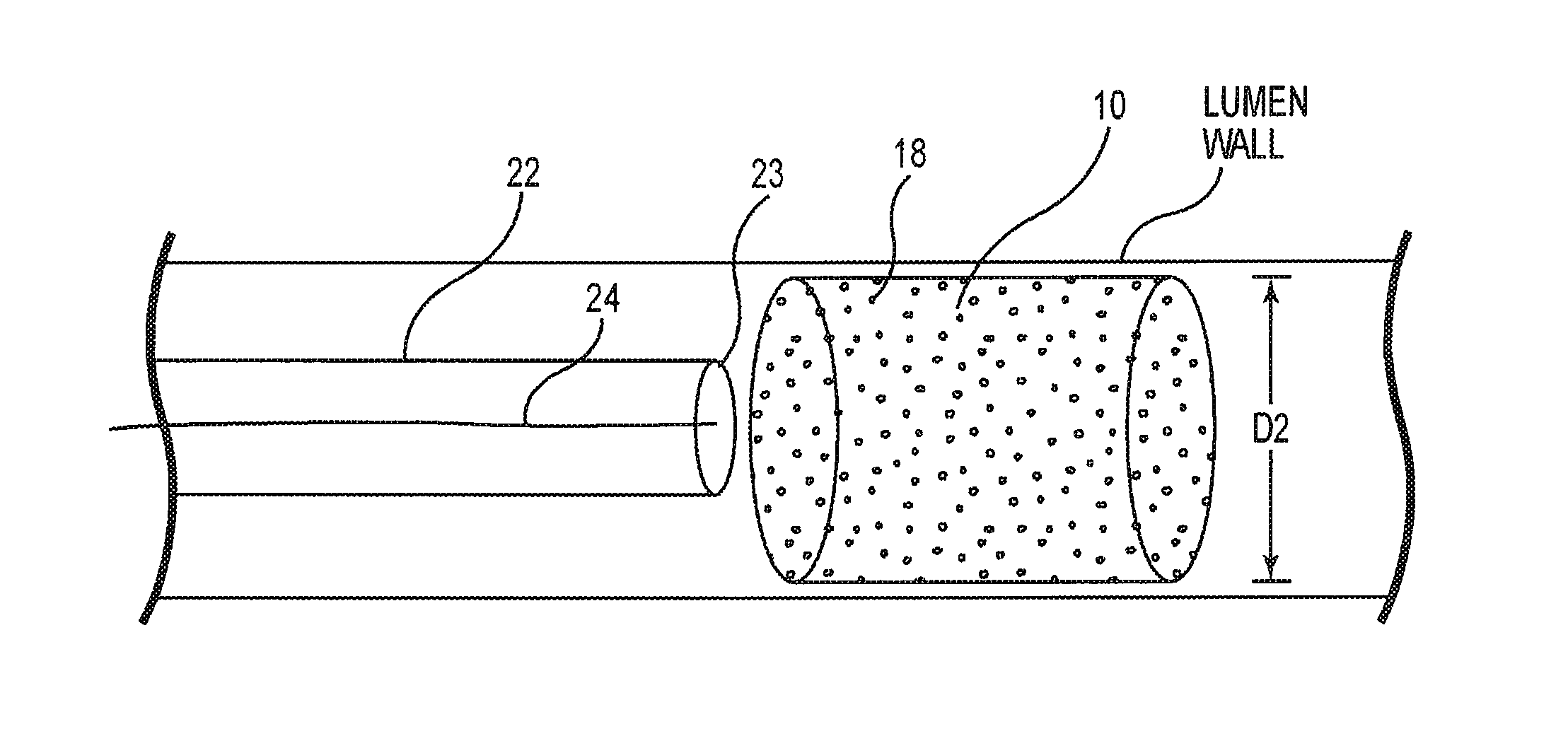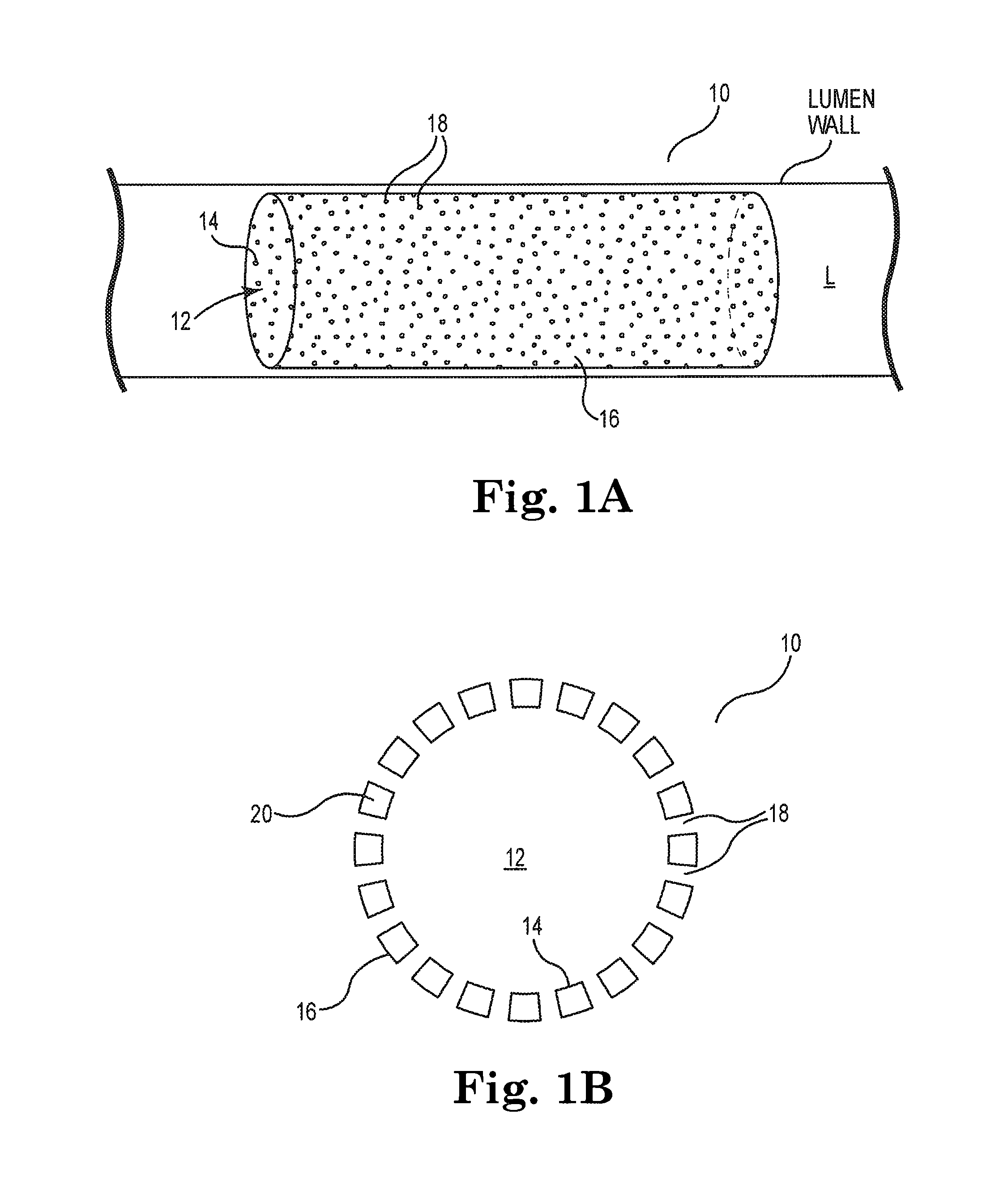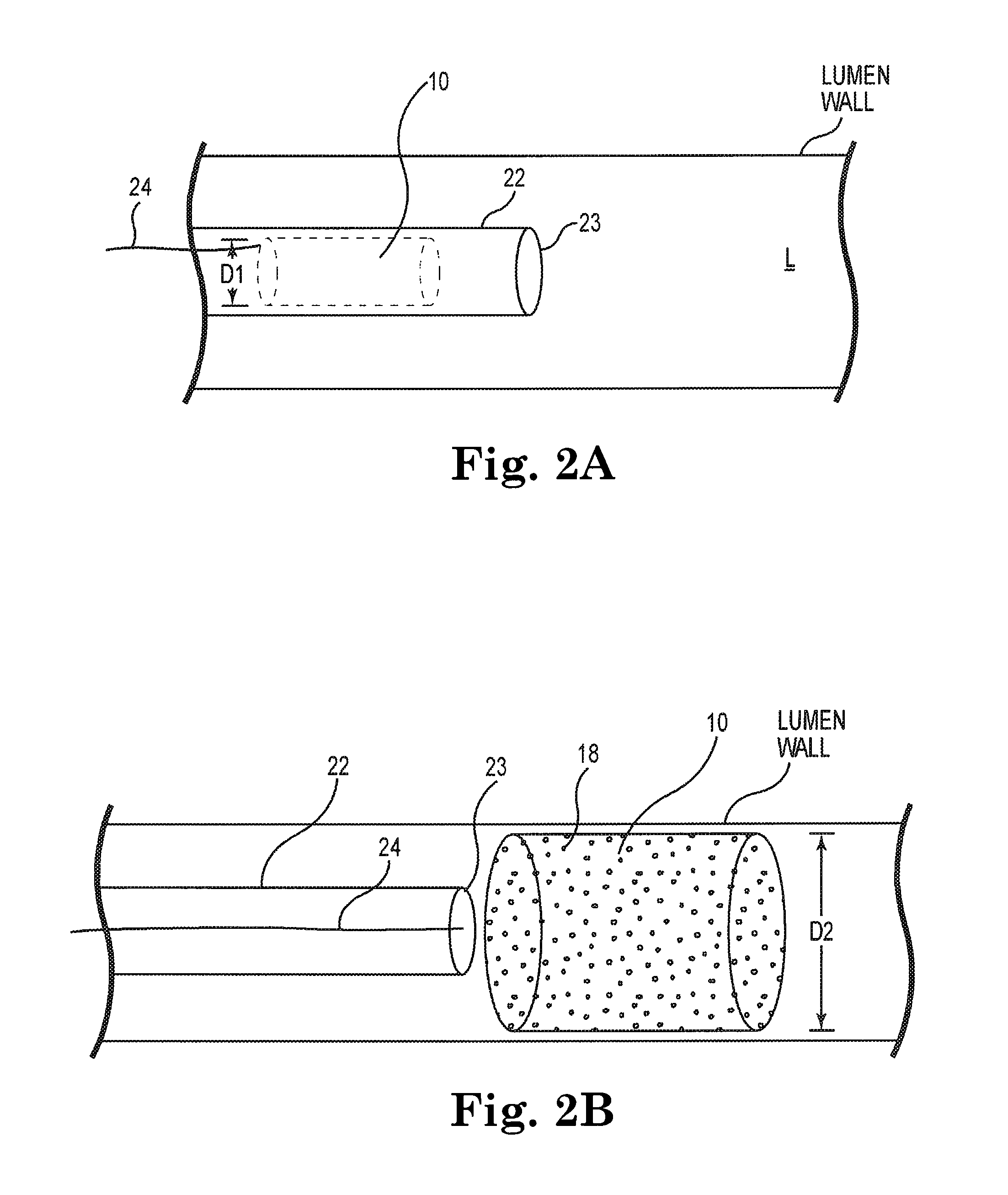Therapeutic agent delivery system and method for localized application of therapeutic substances to a biological lumen
a technology of biological lumens and therapeutic substances, applied in the field of systems, devices and methods for treating the walls of biological lumens, can solve the problems of stent restenosis, blockage of blood flow, and inability to fully discharge the blood,
- Summary
- Abstract
- Description
- Claims
- Application Information
AI Technical Summary
Benefits of technology
Problems solved by technology
Method used
Image
Examples
Embodiment Construction
[0026]While the invention is amenable to various modifications and alternative forms, specifics thereof are shown by way of example in the drawings and described in detail herein. It should be understood, however, that the intention is not to limit the invention to the particular embodiments described. On the contrary, the intention is to cover all modifications, equivalents, and alternatives falling within the spirit and scope of the invention.
[0027]For the purposes of the present invention, the following terms and definitions apply:
[0028]“Bodily disorder” refers to any condition that adversely affects the function of the body.
[0029]The term “treatment” includes prevention, reduction, delay, stabilization, and / or elimination of a bodily disorder, e.g., a vascular disorder. In certain embodiments, treatment comprises repairing damage cause by the bodily, e.g., vascular, disorder and / or intervention of same, including but not limited to mechanical intervention.
[0030]A “therapeutic ag...
PUM
| Property | Measurement | Unit |
|---|---|---|
| pore size | aaaaa | aaaaa |
| pore size | aaaaa | aaaaa |
| pore diameter | aaaaa | aaaaa |
Abstract
Description
Claims
Application Information
 Login to View More
Login to View More - R&D
- Intellectual Property
- Life Sciences
- Materials
- Tech Scout
- Unparalleled Data Quality
- Higher Quality Content
- 60% Fewer Hallucinations
Browse by: Latest US Patents, China's latest patents, Technical Efficacy Thesaurus, Application Domain, Technology Topic, Popular Technical Reports.
© 2025 PatSnap. All rights reserved.Legal|Privacy policy|Modern Slavery Act Transparency Statement|Sitemap|About US| Contact US: help@patsnap.com



